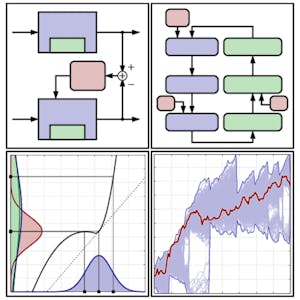Game Theory II: Advanced Applications
About this Course
Popularized by movies such as \"A Beautiful Mind\", game theory is the mathematical modeling of strategic interaction among rational (and irrational) agents. Over four weeks of lectures, this advanced course considers how to design interactions between agents in order to achieve good social outcomes. Three main topics are covered: social choice theory (i.e., collective decision making and voting systems), mechanism design, and auctions. In the first week we consider the problem of aggregating different agents\' preferences, discussing voting rules and the challenges faced in collective decision making. We present some of the most important theoretical results in the area: notably, Arrow\'s Theorem, which proves that there is no \"perfect\" voting system, and also the Gibbard-Satterthwaite and Muller-Satterthwaite Theorems. We move on to consider the problem of making collective decisions when agents are self interested and can strategically misreport their preferences. We explain \"mechanism design\" -- a broad framework for designing interactions between self-interested agents -- and give some key theoretical results. Our third week focuses on the problem of designing mechanisms to maximize aggregate happiness across agents, and presents the powerful family of Vickrey-Clarke-Groves mechanisms. The course wraps up with a fourth week that considers the problem of allocating scarce resources among self-interested agents, and that provides an introduction to auction theory. You can find a full syllabus and description of the course here: There is also a predecessor course to this one, for those who want to learn or remind themselves of the basic concepts of game theory: An intro video can be found here:Created by: Stanford University
Related Online Courses
An entrepreneur is someone who is always on the lookout for problems that can be turned into opportunities and finds creative ways to leverage limited resources to reach their goals. In this... more
This is a self-paced lab that takes place in the Google Cloud console. This hands-on lab shows you how to create a small App Engine application that displays a short message. Watch the short video more
In this specialization, you will learn how to derive, design, and implement Kalman-filter solutions to common engineering problems. You will be able to develop linear and nonlinear Kalman filters... more
Introduction to Cyber Security was designed to help learners develop a deeper understanding of modern information and system protection technology and methods. The learning outcome is simple: We... more
By the end of this guided project, you will be fluent in creating Program Gate Review artefacts for the Planning Phase for diverse programs. You will utilise a logical diagramming plan in an agile... more








